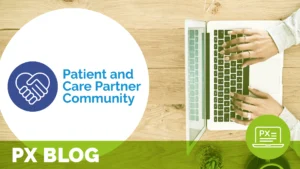Carrying the Load: Improving Clinical Outcomes

Joan Forte, Healthcare Consultant/Nurse/Administrator Barbara Kivowitz, Healthcare Consultant/Author/Advisor
The patient/family caregiver relationship impacts understanding of the illness, coping, and following medical recommendations – directly influencing health outcome. These relationships are a crucial lever for clinicians. At Stanford Health Care, using a relationship-centered framework (based on Love in the Time of Chronic Illness: How to Fight the Sickness- Not Each Other by Barbara Kivowitz), we collaborated with patient/family partners, clinicians, and administrators to develop a curriculum to enable clinicians to support the patient/family caregiver relationship, in their daily practice, and deepen collaboration and strengthen the resilience needed to manage illness. Participants will gain a deep understanding of the impact of illness on the relationship, and approaches to use with patients and caregivers.
Related content
-
 Culture & Leadership | Patient Family & Community Engagement | Quality & Clinical Excellence | Staff & Provider Engagement
Culture & Leadership | Patient Family & Community Engagement | Quality & Clinical Excellence | Staff & Provider EngagementPX Chat – Leading with Equity: DEI & the Patient Experience in Today’s Climate
12pm ET / 11am CT / 10am MT / 9am PT – In a time of heightened political and cultural tension, advancing diversity, equity, and inclusion (DEI) in healthcare is both more critical and more complex than ever. This PX Chat offers a dedicated space for members of The Beryl Institute focused on DEI efforts
Learn more -
 Patient Family & Community Engagement | Staff & Provider Engagement
Patient Family & Community Engagement | Staff & Provider EngagementCo-Creating Change Using Storytelling
During this webinar members of the Global Patient and Family Advisory Board (GPFAB) will demonstrate how telling stories instead of creating guidelines for healthcare professionals will improve patient outcomes. The GPFAB has created a unique storytelling guide that will help healthcare professionals understand the principles of sharing patient/care partner lived experience through storytelling and how
Learn more -
 Patient Family & Community Engagement
Patient Family & Community EngagementHope for Healthcare
Members of The Beryl Institute’s Global Patient and Family Advisory Board wish you happy holidays. As 2024 draws to a close, we asked our members to jot down their hopes for healthcare as we welcome the upcoming new year. Tony Serge: My hope for healthcare is for leadership, providers, and staff to work together with
Learn more
